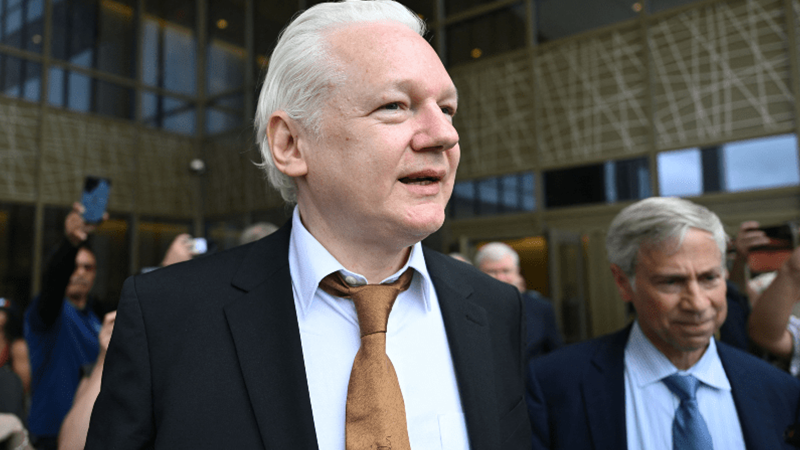Julian Assange, the founder of WikiLeaks, has returned to Australia as a free man following a plea deal that concluded years of intense legal proceedings. Assange, known for publishing hundreds of thousands of confidential U.S. documents starting in 2010, was released from a high-security British prison earlier this week.
The 52-year-old Assange travelled to the Northern Mariana Islands, a U.S. territory in the Pacific, where he pled guilty to a single charge of conspiracy to obtain and disseminate national defense information. The court sentenced him to five years and two months in prison, a term he has already served during his detention in Britain while contesting extradition to the United States.
“You will be able to walk out of this courtroom a free man,” the judge declared, expressing hope that the plea deal would bring some “peace” to Assange after his prolonged incarceration.
Assange’s actions have made him a divisive figure, hailed by free speech advocates as a champion of transparency and condemned by critics who argue that he jeopardised U.S. security and the safety of intelligence sources.
In court, Assange, dressed in a black suit and brown tie with his hair slicked back, acknowledged his role, stating, “Working as a journalist, I encouraged my source to provide material that was said to be classified.”
Despite the media presence, Assange did not make any statements as he left the courthouse. He boarded a plane bound for Canberra shortly after the hearing, where he will reunite with his family.
Jen Robinson, Assange’s lawyer, described the day as “historic,” marking the end of a 14-year legal saga. “It also brings to an end a case which has been recognised as the greatest threat to the First Amendment in the 21st century,” Robinson said to reporters.
Assange’s release and return to Australia close a significant chapter in a case that has sparked global debates over journalism, free speech, and national security.
